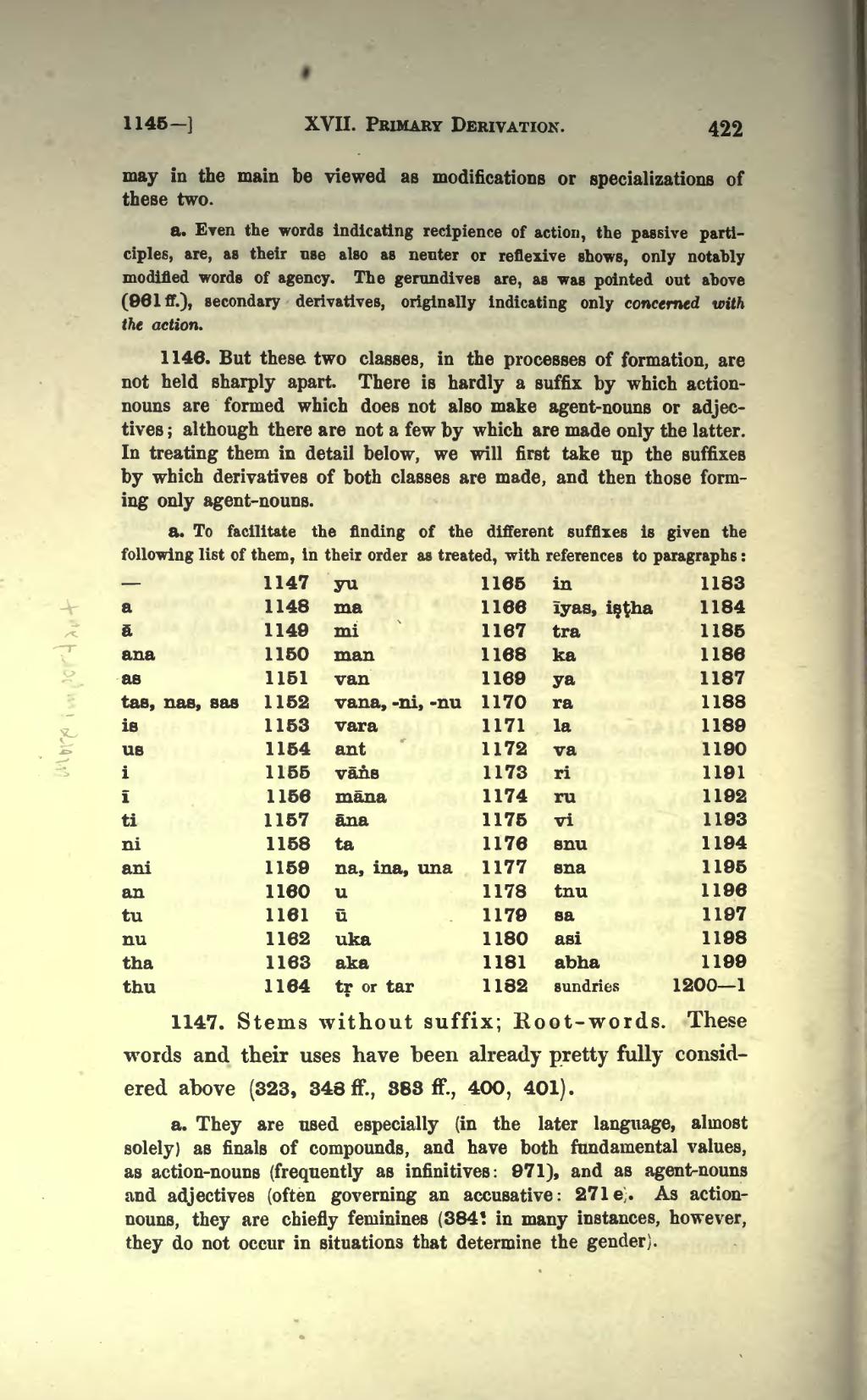may in the main be viewed as modifications or specializations of these two.
a. Even the words indicating recipience of action, the passive participles, are, as their use also as neuter or reflexive shows, only notably modified words of agency. The gerundives are, as was pointed out above (961 ff.), secondary derivatives, originally indicating only concerned with the action.
1146. But these two classes, in the processes of formation, are not held sharply apart. There is hardly a suffix by which action-nouns are formed which does not also make agent-nouns or adjectives; although there are not a few by which are made only the latter. In treating them in detail below, we will first take up the suffixes by which derivatives of both classes are made, and then those forming only agent-nouns.
a. To facilitate the finding of the different suffixes is given the following list of them, in their order as treated, with references to paragraphs:
| — | 1147 | yu | 1165 | in | 1183 |
| a | 1148 | ma | 1166 | īyas, iṣṭha | 1184 |
| ā | 1149 | mi | 1167 | tra | 1185 |
| ana | 1150 | man | 1168 | ka | 1186 |
| as | 1151 | van | 1169 | ya | 1187 |
| tas, nas, sas | 1152 | vana, -ni, -nu | 1170 | ra | 1188 |
| is | 1153 | vara | 1171 | la | 1189 |
| us | 1154 | ant | 1172 | va | 1190 |
| i | 1155 | vāṅs | 1173 | ri | 1191 |
| ī | 1156 | māna | 1174 | ru | 1192 |
| ti | 1157 | āna | 1175 | vi | 1193 |
| ni | 1158 | ta | 1176 | snu | 1194 |
| ani | 1159 | na, ina, una | 1177 | sna | 1195 |
| an | 1160 | u | 1178 | tnu | 1196 |
| tu | 1161 | ū | 1179 | sa | 1197 |
| nu | 1162 | uka | 1180 | asi | 1198 |
| tha | 1163 | aka | 1181 | abha | 1199 |
| thu | 1164 | tṛ or tar | 1182 | sundries | 1200–1 |
1147. Stems without suffix; Root-words. These words and their uses have been already pretty fully considered above (323, 348 ff., 383 ff., 400, 401).
a. They are used especially (in the later language, almost solely) as finals of compounds, and have both fundamental values, as action-nouns (frequently as infinitives: 971), and as agent-nouns and adjectives (often governing an accusative: 271 e). As action-nouns, they are chiefly feminines (384; in many instances, however, they do not occur in situations that determine the gender).
